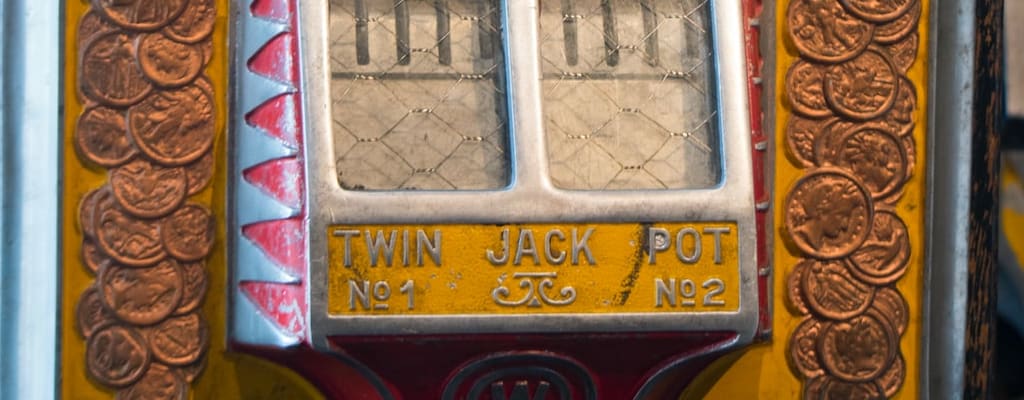lay odds: Idiom Meaning and Origin
What does ‘lay odds’ mean?
The idiom lay odds means to make a prediction or express a belief about an uncertain outcome, often in the context of gambling or betting.

Idiom Explorer
The idiom "lay the groundwork" means to establish a foundation or prepare the necessary conditions for something to happen or succeed.
The idiom "lay on the line" means to take a risk or be open and honest about something, often exposing oneself to potential danger, criticism, or negative consequences.
The idiom "lay on" means to apply or administer something, usually in a forceful or excessive manner. It can also refer to providing or giving something, often in a generous or lavish way.
The idiom "lay eggs" means to produce or create something, often used to describe the act of generating new ideas, inventions, or solutions.
The idiom "lay an egg" means to fail or produce something that is of poor quality, generally in a public or embarrassing manner.
The idiom "in the cards" means something is likely to happen or is destined to happen.
The idiom "hazard a guess" means to make a guess or estimation without having all the necessary information. It implies taking a risk or chance in offering an opinion or answer.
The idiom "go out on a limb" means to take a risk or to put oneself in a vulnerable position by expressing an opinion or taking an action that is not widely supported or accepted.
Meaning: To become optimistic or expectant about something, often to later be disappointed when it doesn't happen as anticipated.
Deciphering the Odds
The idiom "lay odds" is a widely-used expression in the English language. It is often used in informal conversations and has a specific meaning that is easily understood by native speakers.
The phrase "lay odds" originated from the world of gambling, specifically from the practice of placing bets on the likelihood of a certain outcome. In this context, "lay" refers to the act of offering or accepting a bet, and "odds" refers to the probability or likelihood of a certain event occurring.
In its figurative sense, "lay odds" means to express or state an opinion or belief about the likelihood or probability of something happening. It is often used when one person confidently expresses their opinion or prediction about something, often in contrast to what another person thinks or expects.
For example, if someone says "I would lay odds that it will rain tomorrow," they are stating their belief or prediction that it is highly likely to rain. The use of "lay odds" in this context emphasizes the speaker's confidence in their belief.
The idiom "lay odds" is commonly used in informal conversations, but it can also be found in written texts, especially in literature or dialogue-heavy works, where it adds a conversational and expressive tone.
Furthermore, the idiom "lay odds" is not confined to any specific region or social group within the United States. It is used across different dialects and is understood by English speakers nationwide, regardless of their background or location.
The idiom "lay odds" showcases the creativity and richness of the English language. It represents the amalgamation of gambling terminology and everyday speech, allowing for the efficient communication of predictions and beliefs in a concise and expressive manner.
Now, let's explore how the idiom "lay odds" is related to other idioms:
The phrase "dice roll" has a similar meaning to "lay odds" in that it expresses a prediction or belief about the outcome of a particular situation. Just as laying odds reflects confidence in a prediction, the phrase "dice roll" suggests a sense of uncertainty, as the outcome of rolling dice is often unpredictable.
Similarly, the idiom "hazard a guess" shares a connection with "lay odds" as both phrases involve expressing an opinion or prediction. While "lay odds" implies a higher degree of confidence in the prediction, "hazard a guess" indicates a more tentative or speculative approach.
Another related idiom is "fancy one's chances." This expression conveys a belief or prediction about the likelihood of success in a given situation. While "lay odds" often refers to the broader probability of an event occurring, "fancy one's chances" focuses specifically on an individual's prospects for success.
"chances are" is another idiom that aligns with the meaning of "lay odds." Both phrases express a belief or prediction about the likelihood of something happening. However, "chances are" has a slightly more cautious tone, suggesting a recognition of the possibility of different outcomes.
Finally, we have the idiom "lay on the line," which shares a similar verb usage with "lay odds." While "lay on the line" typically refers to being straightforward and honest about one's thoughts or intentions, "lay odds" involves expressing a belief or prediction. Both idioms involve the act of laying something down, whether it is opinion or risk.
The idiom "lay odds" is a versatile expression that allows for the confident expression of predictions or beliefs. It originated from the world of gambling and has since become an integral part of everyday speech. The related idioms "dice roll," "hazard a guess," "fancy one's chances," "chances are," and "lay on the line" provide additional ways to express beliefs or predictions in different contexts. These idioms demonstrate the richness and versatility of the English language, allowing speakers to communicate their thoughts and opinions effectively.
Example usage
Examples of how the idiom *lay odds* can be used in a sentence:
1. She was so confident in the election outcome that she was willing to lay odds on her candidate winning.
2. The experienced gambler decided to lay odds on the underdog team, as he believed they had a higher chance of winning.
3. The friends decided to lay odds on who would be the first one to finish their meal at the restaurant.
More "Gambling" idioms



